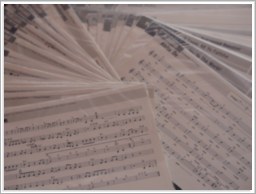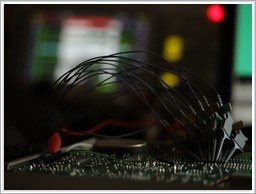Before we get to the PlayCards,
here are a few things I'd be happy if you could help me with:
Maybe you have the card or have downloaded a card image of Roland FANXRUP1 or FANXUP1
that was once floating around the web? If you have the card but don't
know how to create an exact backup of it, I'll help you with it - it's
easy. I've also kludged up an aternative upgrader v1→v2 package a very
long time ago, however it, while fully works, after starting up still
gets caught in some little trick that needs to be found out and fixed.
To fix it and make proper upgrader for everyone, I need someone that is
handy with SH3/7706 (HD6417706) disasembles and reverse engineering.
I've extracted and decompressed everything necessary and see the guilty
spot that needs to be patched, however I (at least currently) don't do
SH3.
Also, I'm looking for Yamaha PSR-2700 demo diskette contents that likely have been archived somewhere.
Maybe someone has a Yamaha PCS-30 (or PC-50, PCS-500, PC-1000) service manual and/or schematics
for it? Since I've made way over two hundred Playcards available to you
(and also tested absolutely all my binaries as well!), working out the
hardware and firmware of this thing is important, since this one,
instead of a custom playcard sequence playback chip, uses a stock Z80!
I'm looking for an Alesis WEDGE rom dump, Alesis XT:C rom dump and also Alesis XT-Reverb rom dump, Here's a MidiVerb dump for you in exchange. In fact, you can find tons of my dumped roms on this great webpage.
How come noone seems to have dumped Roland DDR-30 waverom?
I'm tempted to buy Bought one just to make dumps
(for all of you, btw!), but I already have a hundred more other synths
to desolder and dump in queue, so probably won't go for it. If you have
one - dump all the roms and let me know! It just should will be put on this great website. (already bought it and dumped program and all wave roms)
Any of the ART MultiVerb, ProVerb or similar reverbs/effect rom dumps are also of interest for me, for example I'm looking for ART Proverb 200 - here's an ART Multiverb LT dump for you in exchange.
Judging by the immense popularity of PSS-51 in eastern europe, asia and
amongst russians, it is quite hard to believe that no one have dumped
its roms. Maybe you have dumps of Yamaha PSS-51
program, abc and/or waveroms? Or maybe you know one for local pickup
somewhere within Baltic states? Well, just bought and dumped it, and extracted samples, demos and styles. Also I've previously made dumps of rather
similar PSS-795 and PSS-595.
It seems there that earliest version (A00) of the Yamaha FB01
firmware rom is somewhat rare, and I esimate, based on the units that I
have, that at most 10%-20% of the units in the wild do have it. All
usual ones have the most-likely-final C00, that I have desoldered,
dumped and shared in the long-ago ancient times. However, for the sake
of history and disassembly fun, having A00 dumped is a must as well,
though I don't realy have too much of spare time to desolder and dump
it, especially since maybe someone has already dumped this version
(given the popularity and abundance of these modules). So if you have
it, let me know. At some point I might desolder it and dump it, if it
turns out to be realy rare, but I'd better spend that time desoldering
and dumping something else.
Also, for the curious, initial hardware version (with A00 rom) only
differs with (besides missing ground wire from the pcb inside) that it
does not have a metal sub-chasis under the pcb, so you can tell that
from the outside by looking from the bottom: early ones have two holes,
but no screws in them, and instead has white plastic pegs in other
holes right besides front panel. Serial numbers for the A00 version
seem to be below 02000, while 07000 and up definitely has version C00.
No idea about if there was a B00 version in betwen 02000 and 07000.
(I will likely make a separate article on FB-01 at some point)
In regards to multieffect pedals - maybe you have a rom dump of Roland/BOSS GT-10B? There in this great webpage you can find my GT-3,5,6,8 dumps.
And maybe someone has already desoldered and dumped PSR-6000 waveroms?
Those are three pieces of DIP42 chips, each 2Mbyte (besides two more chips with styles and
then two DIP40 with program and demo songs). I am somewhat tempted to
grab one from the local trash market to do this, yet not sure if I
realy have to. And I don't have a clue when I could actually get to
desoldering it, even if I' ll grab one now. Still GEW9 stuff seems
rather interesting and not that common to come by in the keyboards.
Thanks, I now got the floppy files from Casio WK-1800 Accessory Disk (demo disk that came with it).
I will eventually make a page about this idea and what has been done
(if anything), but for now this text blob is just to keep the following
from the old post for those who are interested: You might like the main
reason I'm lookig for it - it is clearly a fun attack vector
to non-destructively dump its maskrom (in Hitachi H8) since it actually
allows to execute arbitrary code! While dumping can be done even by
blinking a led chdk-style, in this case there's already initialized and
working uart for that. Furthermore, if all is well, waveroms (8Mbyte total)
can also be dumped this way, since H8 can quickly access them, and
procedure to do this for studying will be in the maskrom. On the other
hand, I'll very likely at some point just desolder and dump waveroms
anyways - but it could be more epic to dump it via diskette and midi.
In regards to spare parts and hardware things that I'm missing, maybe you have this:
* Display from early 2000s - Kyocera KCG057QV1DB-G00 found in old Fantom-X keyboards (Roland part code: 03560889 "DISPLAY UNIT LCD KCG057QV1DB-G00").
If you do, please email me!
Yamaha PlayCard
Since I have reverse engineered the playcard modulation/loading
format and made tools to load (encode/modulate) playcard bins back to
the keyboard I thought there should be a page about them!
Binary contents I haven't yet reversed any more than the first 001 bits
are quite definitely card type. Since I don't have any MSX Graphics
Card, or cards that required loading both sides (if those actually
existed - I've only found information about the two-sided loading
process for such cards in manuals), no idea what different version bits or flags they did have.
 |
|
 |
|
Tremendous thanks go to Jayson Smith for beta testing and collaboration on this project!
Currently under construction. I am going to fill it up, whenever I will find some spare time for doing it.
Data in PlayCards
Cards contain very little amount of data: of over two
hundred that I have, all range between 672 to 3464 useful data bits per
card!
It is just 84 to 433 bytes per a complete song, with most cards being around ~390 bytes.
I've only seen a single low-resolution picture, scanned from some magazine, featuring a graphics playcard for MSX - did they realy exist in the wild?
There id a type marker in the header of playcards (all music ones have
001) that might be there to distingush graphics ones and, perhaps, some
other planned ones.
Also, I do not have an MSX card reader CR-1 and its cartrige, and cannot find any picture of their insides.
If you do have one, you could disassemble it and take photos of its
innards. It should, at least, have some discrete or opamp amplifier, or
an IEF chip inside. The cartridge might likely contain some other
chip(s) besides a rom - probably at least a comparator (though could be
made of a couple of transistors) and some glue logic.
Depending on what's inside of it, you could then use the tool (below)
to load any playcards into MSX - possibly just even playing the WAV
audio into an improvised connection adapter instead of swiping or
interfacing through inductive coupling.
Tools for PlayCards
Since I figured out the modulation and processed all of
the audio recordings into binaries, I had to make a few treats for all
of you!
Here's a latest version of my converter-and-more tool
(x86, commandline, win XP/7/10, ~100k, CRC64:F9BC23C40843CE07) that
allows you to turn binaries into wavs which you can load back into your
keyboard.
There will be some schematics on how to mod PC-100 (likely the same for
PCS-30 and similar keyboards) for card digitizing and more.
Also, at some point I'll write down here some technical info on how song binary is encoded into magnetic strip and such stuff.
I don't yet have TYU-30 keyboard and/or cartridges (if you have one to
spare - let me know) but I stronly suspect it might use very similar,
if not even the same format/technology as this magnetic card one. This
would make the cartridge to be 4kbytes in size, that is rather
believable.
Besides TYU-30, there were some home organs (at least something named
-700 if I remember correctly) that used some mini-cartridge system
bundled with music sheets, that organ could play back... but not much
info around about it, nor service manual for it.
For now, you can look around the web on how to load the cards back into your keyboard and how to digitize them.
Loading the cards is possible even without opening the keyboard - all you need is just
an amplifier and electromagnetic transducer placed over the playcard
reader slot.
That's it for now!
And, by the way, before you send me an email with price/availability request, let me repeat: I do not sell these PlayCards.